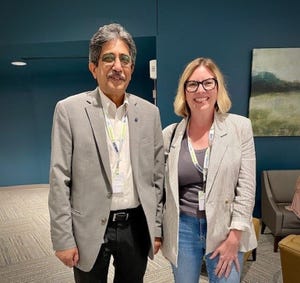Cargill to Petition Supreme Court in Cocoa Slavery Lawsuit
The lawsuit describes atrocious working conditions for children who harvested cocoa in the Ivory Coast, home to 70 percent of the world’s cocoa supply.

The U.S. Supreme Court may decide the fate of a lawsuit filed by former child slaves against Nestlé USA, Inc., Archer Daniels Midland Company, Cargill Incorporated Company and Cargill Cocoa.
In September, a panel of judges with the 9th Circuit Court of Appeals sent the case back to a California federal district court, which had dismissed the lawsuit four years earlier. The food companies petitioned the entire 9th Circuit to rehear the appeal, but their request was denied last month.
Next up in the litigation: a petition for certiorari with the Supreme Court.
“Despite the fact that our request for a rehearing was recently denied, Cargill continues to believe that the allegations in the lawsuit against it and its co-defendants are without merit, that the District Court was correct and justified in dismissing the lawsuit," Pete Stoddart, a Cargill spokesman, said in an emailed statement. “We will appeal this decision to the U.S. Supreme Court."
Nestlé said it was disappointed in the 9th Circuit’s decision to not rehear the case.
“We continue to believe that the District Court was right when it dismissed this case in 2010, and are considering our options for appeal," Lydia Méziani, a company spokesperson, said in an emailed statement. “Nestlé is committed to following and respecting all international laws and does not tolerate illegal or discriminatory labour practices."
Jackie Anderson, a spokeswoman for Archer Daniels Midland Company, characterized the lawsuit as “legally and factually meritless."
“We will continue to seek dismissal of the action and vigorously defend against the claims," she said in an emailed statement.
The suit describes atrocious working conditions for children who harvested cocoa in the Ivory Coast, home to 70 percent of the world’s cocoa supply: Fourteen-hour work days. Kids subsisting on scraps of food. Physical abuse. Children who sought to escape were forced to drink urine and disciplined with cuts to their feet, the suit contends.
In a dissenting opinion that criticized the majority decision’s not to rehear the case, Circuit Judge Carlos Bea said the majority of his colleagues “substituted sympathy for legal analysis." Seven other judges joined him in his dissent.
“I quite agree plaintiffs are deserving of sympathy," Bea wrote. “They are alleged former child slaves of Malian descent, dragooned from their homes and forced to work as slaves on cocoa plantations in the Ivory Coast. But they do not bring this action against the slavers who kidnapped them, nor against the plantation owners who mistreated them."
“Instead the panel majority concludes that defendant corporations, who engaged in the Ivory Coast cocoa trade, did so with the purpose that plaintiffs be enslaved, hence aiding and abetting the slavers and plantation owners," the judge continued. “By this metric, buyers of Soviet gold had the purpose of facilitating gulag prison slavery."
In last year’s decision reviving the lawsuit, the 9th Circuit judges found there was no categorical rule that shields corporations from liability under a statute (Alien Tort Statute) that was practically never invoked for two centuries until an American appeals court interpreted it in 1980 to allow two Paraguayan citizens to lodge a civil action against a Paraguayan police officer who tortured and killed their son.
One of the questions in last year’s appeal was whether plaintiff’s complaint alleged elements of a claim for aiding and abetting slavery.
Plaintiffs argued they only had to allege defendants had the “knowledge" that their acts were facilitating the commission of the offense. The knowledge standard dated back to the Nuremberg trials after World War II where the defendants supplied poison gas to the Nazis. The food companies argued a higher standard applied—plaintiffs must have alleged the defendants acted with the “purpose" of facilitating the criminal act.
Without deciding which standard applied, the appeals panel found plaintiffs alleged elements to show defendants acted with purpose.
"The Court solidly rejected the companies’ 'blind eye' defense that they could look the other way and profit from child slavery as long as they did not directly participate in rounding up the children and forcing them to work," Terrence Collingsworth, a lawyer representing the plaintiffs who is a managing partner in the Washington, D.C. office of Conrad & Scherer, LLP, said last September in an emailed statement. "Of course no decent system of justice would allow such a defense, but the companies pressed it hoping for a technical rescue from a fundamentally inhumane and unlawful practice of profiting from known child slavery."
The case won't return to the district court until the Supreme Court hears the case or denies a request for review. Collingsworth said Thursday that a petition for certiorari hadn't been filed yet with the Supreme Court.
About the Author(s)
You May Also Like






.png?width=800&auto=webp&quality=80&disable=upscale)